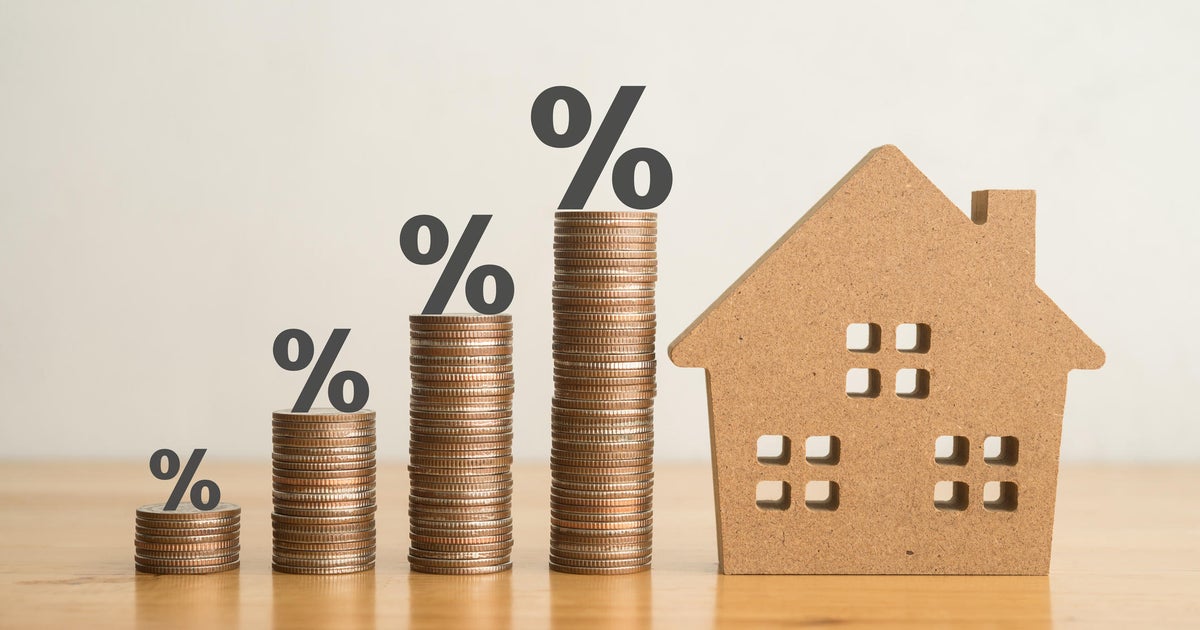CDs vs. high-yield savings accounts: What's the difference?
If you're noticing things like higher prices in grocery stores and higher mortgage rates, you're not alone. Inflation is cutting into many people's budgets while rising interest rates meant to tame inflation can also cause some financial pain. But the good news is that these market changes are also pushing up interest rates for savers.
If you want to earn money on your cash while taking relatively little risk, two popular options are high-yield savings and certificate of deposit (CD) accounts.
If you're interested in pursuing a high-yield savings account, start by exploring your rates to see how much more you could be earning.
What is a certificate of deposit (CD)?
A traditional CD is an account where you deposit money for a fixed period of time in exchange for a fixed interest rate.
For example, if you put $1,000 into a 12-month CD that pays a 4.5% annual percentage yield (APY), then you would have $1,045 at the end of those 12 months.
While you usually can withdraw your money earlier than the designated term if need be, that typically comes with a penalty, such as losing a few months worth of interest that you otherwise would have earned.
You can buy traditional CDs through banks or credit unions. You can also buy brokered CDs through a brokerage firm, but these can have different rules and protections, so you'll want to carefully analyze your options before purchasing. Explore your CD options online now.
What is a high-yield savings account?
A high-yield savings account is a savings account, typically with a bank or credit union, that pays a relatively high interest rate.
While different individuals may have different views of what a high yield is, generally high-yield savings accounts pay above the national average APY for savings accounts.
Functionally, a high-yield savings account tends to work like any other savings account. The difference can be the branding, and sometimes the types of institutions that offer high-yield savings are a little unconventional, like being online-only vs. having physical branches. Explore your high-yield savings options online now.
Differences between CDs and high-yield savings accounts
CDs and high-yield savings accounts have several differences, such as:
Duration
CDs are intended to be used for a set duration. A 5-year CD, for example, is meant to be held for five years. At the end of the term, CDs often have automatic rollover options into new CDs, unless the depositor wants to pull their money out at that time.
In contrast, a high-yield savings account is open-ended. You can generally keep your money in the account for as long or as little as you'd like. You can also add and remove money over time.
Savings accounts used to have limits on the maximum number of transfers and withdrawals per statement period, but the Federal Reserve lifted that rule in 2020. However, your financial institution might still have its own rules that you'll want to clarify.
Deposit minimums
CDs also tend to have higher minimum deposits than high-yield savings accounts. Often that's around $500-1,000 to open a CD, but it varies depending on the financial institution and perhaps the rate being offered. Some CDs have no minimums, but you'd probably have better luck finding a no-minimum high-yield savings account, or at least a much lower minimum balance, such as $100.
Interest rates
CD interest rates, especially for those of a 1-year duration or more, tend to be greater than high-yield savings interest rates. However, traditional CDs generally have fixed interest rates, whereas high-yield savings accounts can have fluctuating rates.
So, if you opened both a CD and a high-yield savings account at the same time, it's possible that the CD would start out with the higher rate, but then down the road, the savings account could have the higher rate, depending on the broader market environment.
That's one reason why many people build what are known as CD ladders, where you split your money among CDs of varying durations. That way, as some mature, you can potentially take advantage of higher interest rates by putting that money into new CDs. Yet if rates fall, at least you still have some CDs of a longer duration from that previous rate environment.
Similarities between CDs and high-yield savings accounts
While there are several notable differences between CDs and high-yield savings accounts, at their core, they're both intended to be relatively safe stores for cash. Unlike investments that can go up or down in value, both traditional CDs and high-yield savings accounts are generally meant to protect your principal and then provide additional earnings from interest.
Also, both traditional CDs and high-yield savings accounts tend to be insured by the Federal Deposit Insurance Corporation (FDIC) or the National Credit Union Administration (NCUA), though you'll want to confirm with the specific institution you're getting the product from.
How can you determine which option is best?
Choosing between a CD and a high-yield savings account depends on factors like your current finances, goals and risk tolerance.
If you want more liquidity, for instance, you'd probably choose a high-yield savings account. If you want the certainty that comes with a fixed interest rate that often starts higher than high-yield savings interest rates, you might choose CDs.
Also, look for any fees that these products may carry. While many CDs and high-yield savings accounts do not have fees, you don't want to assume and get hit with unexpected charges.
And keep in mind that this doesn't have to be an either/or decision. Some people open a high-yield savings account for flexibility while also putting some money into CDs. You also might put some money into investments like stocks to further diversify your assets.
To find what works for you, consider exploring interest rates and terms from different providers. You also might want to speak with a financial advisor or another trusted professional who can help you determine what works best for you. Explore your high-yield savings options online now to see if these accounts work for you.




